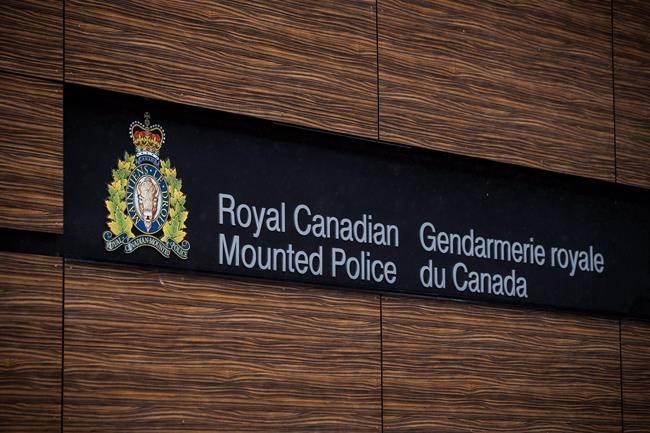OTTAWA — The Liberal government is looking for ways to improve policing services provided under contract by the RCMP across Canada — eyeing everything from overall cost and sustainability to stronger oversight and accountability.
Among the possibilities are "more responsive" police service models that could involve closer integration of the RCMP and community social services, say internal Public Safety Canada notes.
The notes, obtained through the Access to Information Act, are a discussion guide for wide-ranging consultations on options to strengthen the RCMP's contract policing.
The RCMP provides front-line policing services through contracts with all provinces and territories, except Ontario and Quebec, as well as some 150 municipalities. Current agreements don't expire until March 31, 2032.
Provinces and territories pay 70 per cent of RCMP costs and the federal government covers the remainder. Municipal agreements vary, sometimes depending on population size.
"What principles should guide future discussions around how and which costs are shared between contract jurisdictions and the federal government?" asks one of the discussion guide questions.
"How could the contract policing program evolve to better meet the needs of the communities it serves?"
Public Safety said the department, in collaboration with the RCMP, held in-person meetings from spring to fall 2023 of last year with officials from provinces and territories that participate in the contract policing program.
In addition, there were virtual sessions with municipal partners and other interested parties, such as the RCMP management advisory board, the Canadian Association of Police Governance, the Public Service Alliance of Canada and the National Police Federation, which represents front-line Mounties.
Virtual meetings were also held with First Nations on a regional basis, and two national sharing circles took place in October.
A coming report will summarize the views of partners on the program, as well as "areas for potential improvements," Public Safety said.
In recent years, some jurisdictions have pondered alternatives to the RCMP, with Surrey, B.C., and Grande Prairie, Alta., opting to create their own municipal police services.
The changes have played out against a bigger backdrop of fundamental questions about the overall role of the RCMP and how it can balance service to small communities with the demands of federal policing amid cyberthreats, financial crime and national security vulnerabilities.
"The nature of the risks and threats covered by federal policing are growing in complexity and significance," says a May 2023 memo to Prime Minister Justin Trudeau, released under the access law.
"Notwithstanding its exclusive responsibility for federal policing, the majority of the RCMP's resources are allocated to contract policing."
A commission of inquiry into the horrific 2020 Nova Scotia shootings recommended last year that the federal public safety minister establish priorities for the RCMP, keeping the tasks that are suitable to a federal policing agency.
For the moment, the review of contract policing suggests the government is seeking measured improvements — not wholesale changes — to the contract policing system.
Uncertainty over federal intentions prompted National Police Federation president Brian Sauvé to write to Trudeau last July seeking clarity.
"Our members put their lives on the line every day, and they deserve certainty regarding the federal government's long-term commitment to the RCMP's important role in Canada's provinces, territories and communities," he wrote.
Sauvé also stressed a need for the federation to participate in the consultation.
He said in a recent interview the letter opened the door to the federation sharing its views with officials.
Sauvé now believes the consultation on contract policing is about "modernizing and improving service delivery."
RCMP commissioner Mike Duheme recently called the consultation a way to "touch base" in the runup to renewal of agreements.
"I think with any type of business, when you're going to renew a contract, you want to make sure that you've addressed some of the shortcomings and try to incorporate what the people want into the contract," Duheme said.
"We've heard many favourable comments across the country about the organization," he said. "So I'm very confident that people want to maintain the RCMP."
Duheme said the force also respects that some communities have decided to set up their own police forces, adding it's up to the RCMP to come to the table with the information for them "to make an informed decision."
This report by The Canadian Press was first published March 20, 2024.
Jim Bronskill, The Canadian Press




